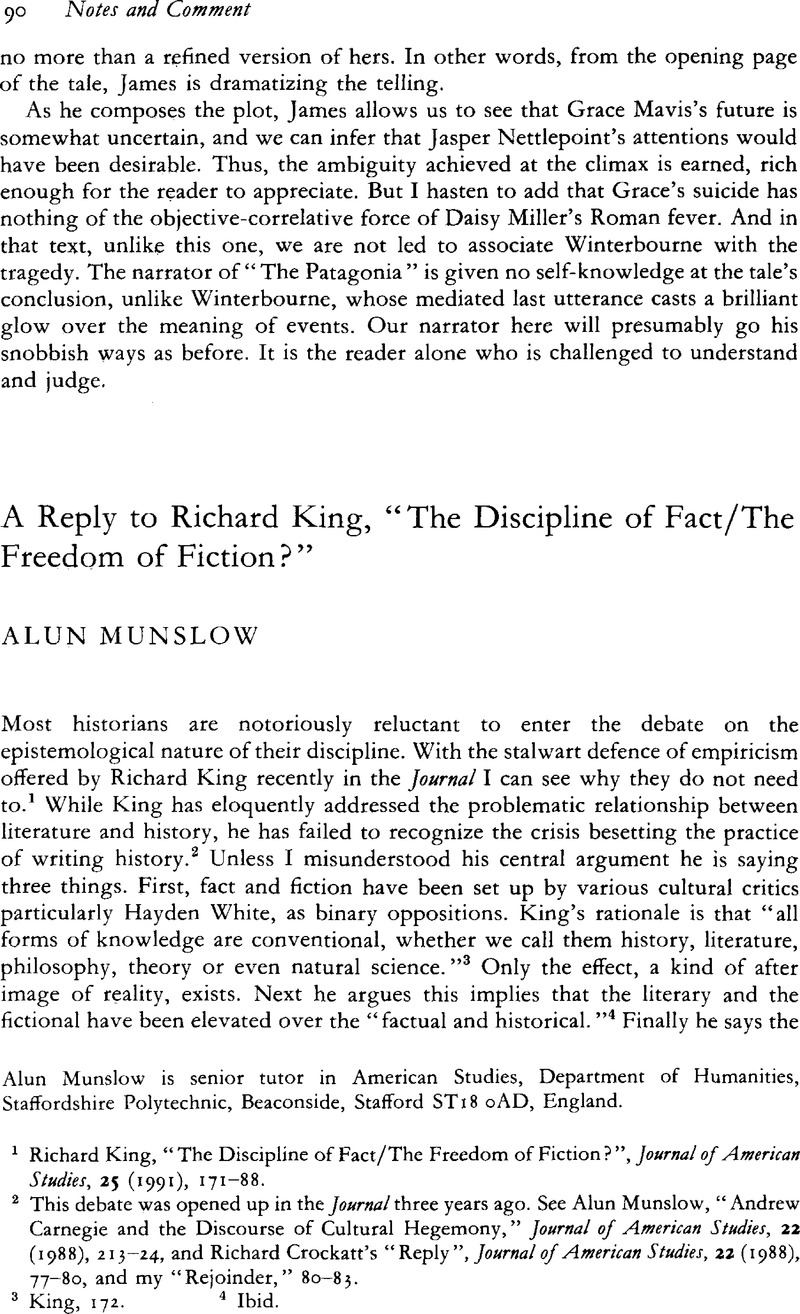No CrossRef data available.
Published online by Cambridge University Press: 16 January 2009

1 King, Richard, “The Discipline of Fact/The Freedom of Fiction?”, Journal of American Studies, 25 (1991), 171–88.CrossRefGoogle Scholar
2 This debate was opened up in the Journal three years ago. See Munslow, Alun, “Andrew Carnegie and the Discourse of Cultural Hegemony,” Journal of American Studies, 22 (1988), 213–24CrossRefGoogle Scholar, and Crockatt's, Richard “Reply”, Journal of American Studies, 22 (1988), 77–80Google Scholar, and my “Rejoinder,” 80–83.Google Scholar
3 King, , 172.Google Scholar
4 Ibid.
5 Ibid., 175.
6 Ibid., 177.
7 Ibid., 175.
8 Ibid., 178.
9 Ibid., 184.
10 Ibid., 185.
11 Ibid.
12 See White's, Hayden relativist trilogy, Metahistory: The Historical Imagination in Nineteenth Century Europe (Baltimore, 1973)Google Scholar, Tropics of Discourse: Essays in Cultural Criticism (Baltimore, 1978)Google Scholar and The Content of the Form, op. cit. See also Munslow, Alun, “The Historical Text as Literary Artifact: Frederick Jackson Turner and the Frontier Thesis,” Overhere: Reviews in American Studies, 5 (1985), 3–17Google Scholar, and Ellis, Richard J. and Munslow, Alun, “Narrative, Myth and the Turner Thesis,” Journal of American Culture, 9 (1987), 9–17CrossRefGoogle Scholar; Munslow, Alun, “Andrew Carnegie and the Discourse of Cultural Hegemony,” Journal of American Studies, 22 (1988), 213–24.CrossRefGoogle Scholar Positivists should consult Gay, Peter, Style in History (New York, 1989)Google Scholar, in addition to the vast bulk of 19th and 20th century written history.